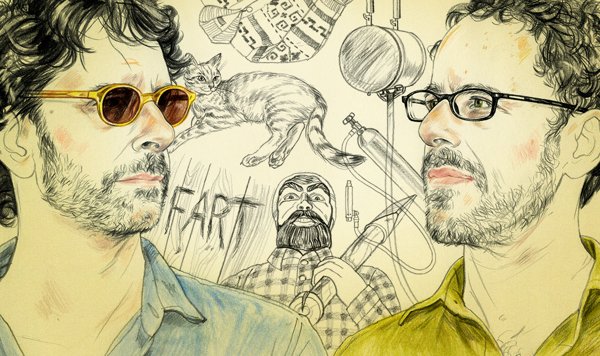
With their latest film Hail, Caesar! out earlier this year, Film Focus’ resident cultural commentator, Ash takes a look back at the Coen Brothers’ monumental body of work.For all its faults, it’s inherent inequalities, its crass fêting of wealth and power, it’s singularly nepotistic and institutionally abusive commissioning process, there are some people who just love Hollywood. The Coen Brothers are among them. They are grateful to it, fawn over it, caress it’s insecurities and intricacies longingly in every shot, in every take of every one of their movies.Hail, Caesar!, is their latest paean to the art of movie making in this most titillating of towns, where danger lies beneath a most glamorous veneer.
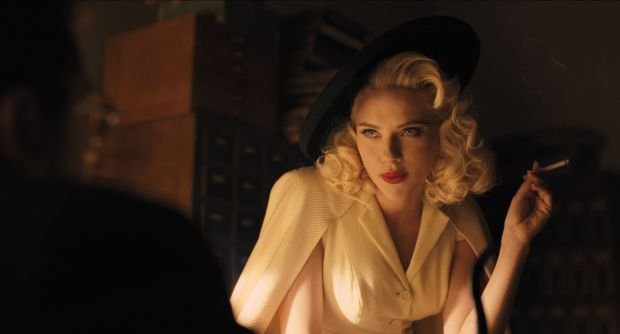
The Golden Age of Hollywood, Scarlett Johansson in Hail, Caesar! (2016)
The Golden Age of Hollywood is their recurrent passion, particularly the passage of the everyman who passes, job-like, through the minefield of life. Their oeuvre is full of people blindsided by character or education, caught up in things much bigger than themselves. Burn After Reading has two gym workers who discover the memoirs of a CIA official and find themselves in way over their heads.
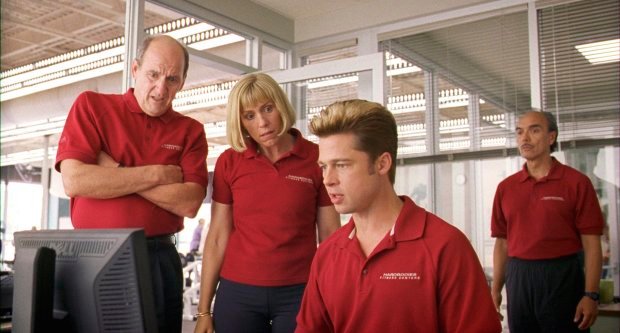
Burn After Reading (2008)
The Hudsucker Proxy, one of the lesser known Coen flicks, is another useful reference. The man who invented the hula hoop is the subject of this one, an ode to the boardroom comedies of the 1950s and the early era of colour, complemented by Jennifer Jason Leigh doing cartoon Park Avenue accent, the quintessential ‘career gal’ in a man’s world. The Big Lebowski, is the most famous, and the one that hides it’s roots the best, the ageing hippie turned sleuth who is too stoned to see the case straight – but eventually solves it in a post-coital funk while smoking the last embers of a doobie.

The Big Lebowski (1998)
This is that Hollywood trope they love: the goofball, whose semi-consciousness – literally in this case – ebbs at the edge of a bigger plot, as he tries to stay awake long enough to work out what is happening to him. One is tempted to suggest that this is a metaphor for film itself: to encourage the watcher to awake when the film is done and ‘carry the fire’ as it is put at the end of the Coens’ wonderful Cormac McCarthy adaptation No Country For Old Men when we leave the dream.But that is conjecture. Their love of Hollywood’s history leaves us on firmer ground and helps us fill in the picture. It is found not only in plot but also in mise en scene. Oh Brother Where Art Thou is the sepia tinged dustbowl musical. Barton Fink is about the process of Hollywood during this era but is replete with a sort of claustrophobic sweatiness, a corrupted funk – the walls literally sweat at one point.
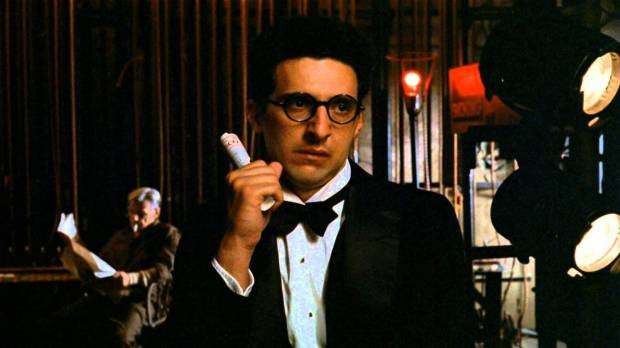
Barton Fink (1991)
George Clooney, fittingly, is a recurrent hire of theirs. He is one of the few contemporary film stars who retains that allure of old Hollywood, the whiff of a Cary Grant or a Clark Gable. He also plays the golden age-era film star in Hail, Caesar!, who is kidnapped while making a sword-and-sandals epic.

George Clooney in Hail, Caesar! (2016)
It is probably too much to argue that the Coens have a consistent critique of Hollywood in the way that, say, David Lynch does. Lynch is fearless in exposing the danger – particularly faced by women – who submit to the process of Hollywood: see Mulholland Drive or Inland Empire and feel the evil, murder and horror that lies behind everyone of Hollywood’s corners (quite literally inMulholland Drive, in one of the most terrifying scenes I have ever seen on celluloid). The Coens have no similar consistency in their project, either aesthetic or moral. They are not radicals, they merely encourage the viewer to think again. And they leave themselves open to the criticism of acquiescing in Hollywood’s chauvinism and complacency as a result.Fans will no doubt argue – and they are right to do so – that this is unfair and that there is more to the Coens than this and will point to the fantastic Millers’ Crossing in which the virtues of quiet friendship between brothers are extolled, or the masterful No Country for Old Men as examples of the Coens dabbling with more elemental forces, with evil and heroism and kinship, and emerging victorious. It would be churlish to argue otherwise and to suggest that these are anything other than great movies. But when the Coens ‘do serious,’ they do it with not nearly as much verve – or dare I say it enjoyment – as they do when they are playing the language of film itself.
Thus we alight on the Coens’ sensibility: not so much high art as living room chat, a recasting of the Amercian Indie in the language of the quietly conservative every(wo)man. Perhaps this sensibility emerges from their childhood, as Jewish boys growing up in Republican-voting Minnesota. Nicely assimilated into one of America’s most affluent areas, shorn of the fire of urban radicalism that permeates so starkly the works of directors like Sydney Lumet or novelists like Phillip Roth. I’m reminded of a scene in the Coen Brother’s very first feature, Blood Simple.Ostensibly a fairly serious – and in my view much underrated – film noir about an adulterous murder gone wrong, one moment stood out for me. The rich husband has caught his wife (Frances McDormand, another recurrent Cohen casting and the elder Cohen’s partner) and her lover together. He’s got in the car and zoomed off in a righteous fury. Unfortunately he’s turned the wrong way, hits a dead end, and has to turn the car round and zoom the other way again. That’s the sort of detail that makes it fun, that makes it a Coen brothers story.It works because it is on film. It doesn’t work nearly as well in any other medium. Ethan Coen’sGates of Eden, a collection of short stories and plays that is at best uneven, in general largely derivative. We’ve spoken about David Lynch, but in this way the Coens’ are also unlike their great contemporary, Quentin Tarantino, whose writing transcends medium and whose ideas have become culture as a result.
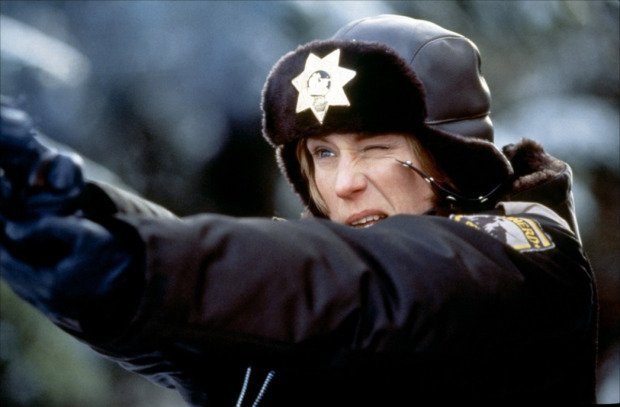
Frances McDormand as Margie in Fargo (1996)
Film is where the Coens’ sensibility takes flight. Film is their passion, the thing that gave these two Minnesotan brothers a global voice. Unsurprising, then, that the Coens’ expression relies so heavily on the fact of film. Their celebration of the debt they owe to the medium: another instance of their natural conservatism trumping their learned radicalism. Frances McDormand’s police inspector Margie who solves the grizzly murders underpinning the hugely successfulFargo is perhaps the Coens at their most singular: the wisdom of what ultimate liberal solipsistBarton Fink, calls, ‘the common man’ fated through the movies: the ‘common man’s’ storytelling medium. How sinister it is that this same medium remains the plaything of a very tiny few.
Written by Ash Singh and compiled by Emily Cook

Find Film Focus Elsewhere:
Blog: reelvision.wordpress.com
Facebook: facebook.com/FilmFocusReelVision
Video Channel: vimeo.com/channels/filmfocus
Audio Channel: soundcloud.com/filmfocus
I read the whole thing, but had to CTRL+F to find Raising Arizona, and I didn't!
Hey I need ur help I accidentally sent u 5 steem can you please please send it back to me?? I’m so sorry to bother u